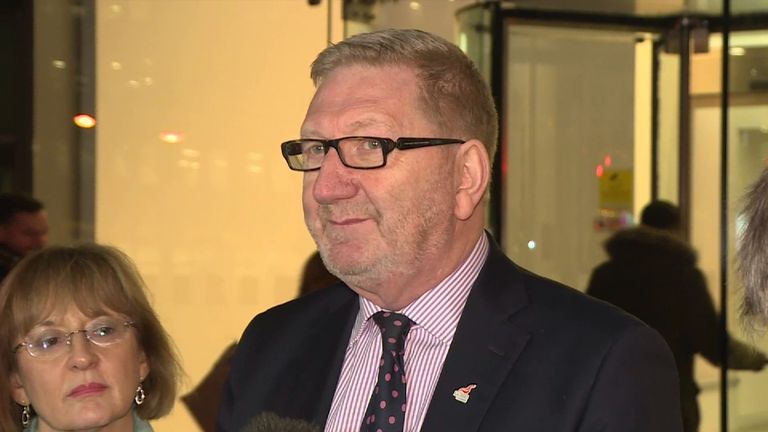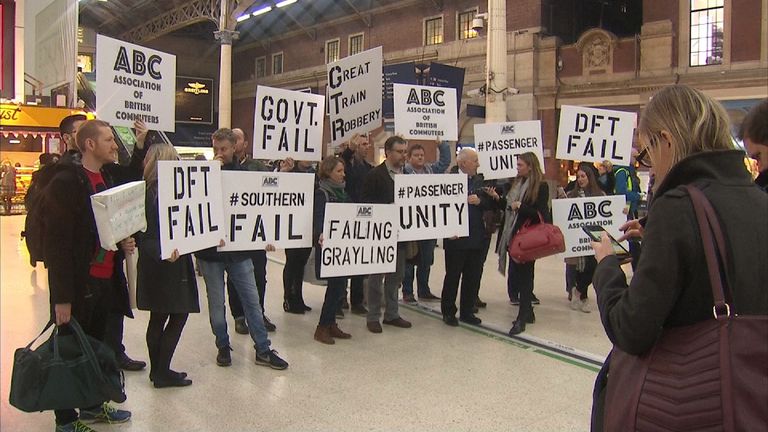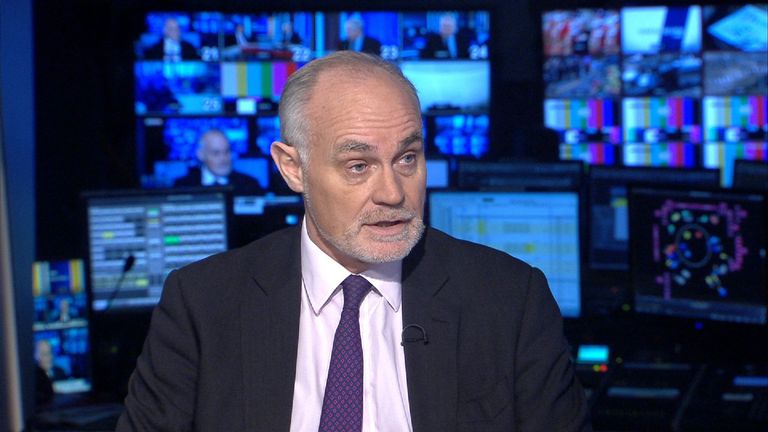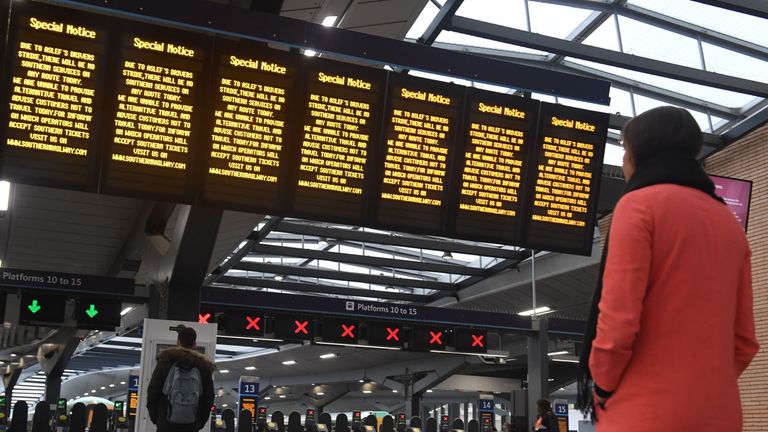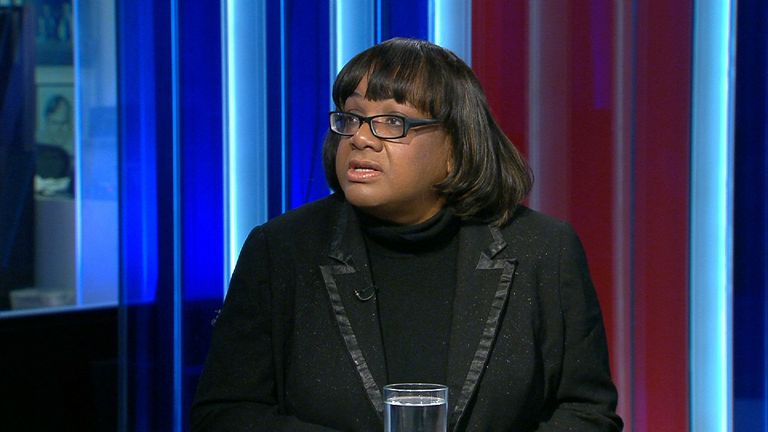Current spate of strike action 'has echoes of Winter of Discontent'
Observers see a mood of discontent growing among UK workers, but a Sky poll finds there is little sympathy from the public.
Monday 26 December 2016 20:33, UK
The British winter of 1979 saw widespread strike action that plunged the country into chaos.
Services came to a standstill, there were food shortages, power cuts and rubbish left on the streets for weeks.
For this reason it has become grounded in history as the Winter of Discontent.
Back then 29 million working days were lost to industrial action involving 4.6 million workers.
More than 30 years later and strike action is a tiny fraction of what it was then.
There were just under 300,000 working days lost this year in comparison.
However, with a string of disputes this month involving transport, airport and postal service staff some believe a similar mood of discontent is growing - and could last longer than Christmas.
Author Nicholas Jones was a journalist during the strikes of 1979 and says he can sense a momentum building.
He said there is undoubtedly an upsurge in militancy, driven by fewer well paid jobs and the fact that many workers have now had pay freezes for up to seven years.
"They are being offered pay increases they say don't match inflation," he said.
"One senses there is a mood of protest out here in the country following the Brexit vote and workers are saying we are prepared to take the flack and go out and strike."
But in an exclusive poll Sky News found that workers won't find much sympathy from the public.
When we asked if people supported the current strikes by transport and postal service workers, 48% of people said they didn't. Just 26% were in favour.
And when asked who was to blame for the current strikes, 40% said the unions, 21% the Government, and just 18% the companies themselves.
Andrew Lilico, chairman of Europe Economics, says this lack of support for industrial action is not a surprise at a time when trade union membership is low.
He said: "At the time strikes first got going in the UK, companies were encouraged to form monopolies or act as cartels.
"That monopoly power was supposed to be offset by the monopoly power of the workers all getting together with the union.
"If they're going to have collective bargaining you need strike action to back it up. In the modern economy that concept has really gone."
But others strongly disagree.
Henry Lopez is originally from Ecuador and has been working as a porter at a London university for four years.
He is also an activist who, in the last four years, has successfully campaigned to win basic employment rights for more than 400 outsourced workers, like himself.
He said: "Before we started the union we faced all kinds of problems; for instance people being sacked at any time, bullying and harassment in the workplace - workers being victimised.
"We didn't know there was an employment law until we started our own trade union."
That union is the Independent Workers Union of Great Britain (IWGB), which now represents a large and growing proportion of the workforce on low pay and without basic employment rights.
These include cleaners, couriers or workers of the so-called gig economy who are on zero-hours contracts.
Such workers say they often feel ignored by the traditional unions, which are failing to attract a younger demographic.
General Secretary of IWGB, Jason Moyer-Lee, says what we are seeing is the fight back.
He said: "It's important we nip this exploitation in the bud now because if we don't it will spread to other sectors of the economy and we will find we are all bogusly classed as independent contractors with no employment rights."
While industrial action might not enjoy much public support, the threat of it has still proved effective in the recent cases of British Airways cabin crew and airport staff.
Indeed, for a rising number of workers, unionising is becoming more important than ever, with a mood of discontent growing from the bottom up.
Industrial action might not be on the same scale of 1979 - but for some observers, there are echoes of it.

